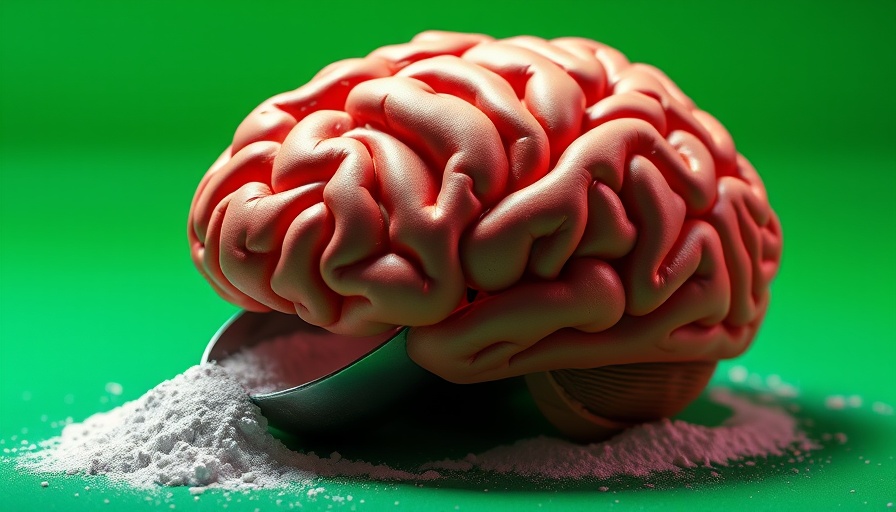
Can Creatine Secretly Boost Your Brainpower?
In a world where productivity reigns supreme, the quest for cognitive enhancement has led many to wonder: can a simple supplement like creatine actually improve our mental acuity? A growing body of research, as well as anecdotal evidence from individuals like Drew Dible, suggests that this once-maligned powder could offer more than just physical energy.
The Brain Gains from Creatine
Traditionally known as a supplement for athletes looking to maximize their physical performance, creatine has recently emerged as a potential ally in cognitive health. Creatine monohydrate is touted to enhance not just memory and focus, but also mood regulation and resistance against the effects of stress and mental fatigue. For digital nomads—who often juggle work, travel, and a myriad of distractions—this could spell significant advantages.
Emerging Science Behind Creatine and Mental Health
The advocacy of creatine as a cognitive enhancer found its footing thanks to experts like Andrew Huberman. The Stanford neuroscientist points out that besides bolstering physical prowess, creatine shows promise in scientific studies concerning mood improvement and depression symptoms. This emerging narrative is piquing interest beyond fitness circles towards mainstream wellness, engaging those who may not be traditional gym-goers but who value mental clarity and health.
Creatine: From Gym Bags to Daily Routines
Once viewed with suspicion—often linked to bodybuilders seeking rapid weight gain—creatine is undergoing a renaissance. According to data from the Vitamin Shoppe, creatine sales have surged by 120% in a year, reflecting a shift in public perception. More than just a boost for gym enthusiasts, it is being integrated into daily routines as a way to maintain cognitive function, especially as individuals navigate mental fatigue that often comes with a digital nomadic lifestyle.
Navigating the Supplement Landscape as a Digital Nomad
For those who thrive on flexibility and adaptability—characteristics inherent to digital nomadism—finding reliable supplements is key. Creatine is now available in various forms, from powders to gummies, making it easier to incorporate into travel routines. Whether mixed with water or added to a smoothie, it can serve as a compact solution for on-the-go energy needs.
Potential Pitfalls and Misconceptions
Despite its newfound popularity, misconceptions still abound regarding the safety and efficacy of creatine. Concerns about potential kidney damage and bloating have been echoed throughout the years, yet studies support that when taken correctly, creatine is generally safe for healthy individuals. As always, consulting with healthcare professionals prior to starting any supplement regimen is crucial, particularly for those with pre-existing conditions.
Future Implications for Brain Health and Wellness
Looking ahead, the potential for creatine in the realm of cognitive health is vast. As research continues to unfold, we might soon see more tailored supplements designed for mental sharpness and resilience in stressful environments. This is particularly relevant for digital nomads, who often face unpredictable schedules and pressures that can impact mental clarity. Creatine could play a pivotal role in keeping minds agile and focused on the go.
In conclusion, the evidence behind creatine’s benefits reaches beyond physical fitness into the realms of cognitive function and mental health. Exploring its role could provide valuable insights for individuals seeking to enhance their focus and resilience while navigating the complexities of a modern, dynamic lifestyle.
 Add Row
Add Row  Add
Add 




Write A Comment